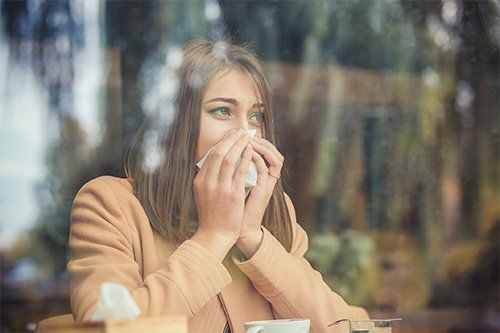4 Do's and Don'ts for Treating Nasal Allergies

If you suffer from nasal allergies, you are probably looking for relief from the sneezing, nasal congestion, and watery or itchy eyes. While your symptoms may periodically return, even with treatment, you can make living with nasal allergies more bearable. As you search for answers, keep the following do's and dont's in mind.
1. DO Determine What Triggers Your Symptoms
Knowing what you are allergic to may help you avoid these triggers. Do you sneeze whenever your cat cuddles up to you? Do your eyes water when you venture outdoors on a high-pollen-count day? Does a dusty environment make you feel all stuffed up?
You may have difficulty pinpointing your allergy triggers, but you must be persistent. If you are completely mystified and uncertain of what causes your allergy attacks, make an appointment with your physician. The doctor will ask you a series of questions, take your medical profile, and possibly order a skin test.
The most simple and minimally invasive test is a skin-prick test. A minuscule amount of suspected allergen will be pricked onto an area of the skin. If you develop a reaction, such as redness, swelling, or itching, you are probably allergic to that particular allergen.
Another type of allergy test is known as intradermal. With the intradermal test, a fine needle is used to inject the trace of allergen into your skin. Your doctor may opt for this method if the skin-prick test is inconclusive.
Once you learn what causes your allergic reaction, you should do your best to avoid the triggers. For instance, if ragweed or pollen is the culprit, try to limit your time outdoors when the pollen count is high. Use your air conditioning with the windows closed, as this may help as well.
If dust mites cause your symptoms, be sure to dust your home regularly and use a vacuum equipped with a high-efficiency particulate air (HEPA) filter. Also, wash your bed linens frequently.
2. DON'T Overuse the Nasal Decongestant Sprays
Nasal decongestants may provide some relief from congestion, but these sprays should be used only for a couple days. When overused, nasal decongestant sprays may lead to a rebound effect and make matters worse. Instead, ask your doctor about the using oral medications to relieve your symptoms, and use only as directed.
3. DO Rinse Your Sinuses
A safe and effective way to rid yourself of irritants is to flush out your nasal cavities and sinuses with a saline rinse. Saline solutions contain purified water and salt, so there are no drugs to cause side effects.
You can buy a saline nasal spray at the store, or you can make your own nasal rinse using salt water. Be sure to use distilled water or boil the water first to make it sterile. Never use tap water to rinse your sinuses, as contamination may make you ill.
A good alternative is to use a neti pot to flush your sinuses. Place sterilized salt water inside the neti pot container, and use it to flush your sinuses. Read directions carefully before use.
4. DON'T Wear Contact Lenses Exclusively
If you require prescription eyewear, don't rely on contact lenses. If you have severe allergies, pollen and dust may settle on the lenses and cause a reaction. If you are a contact-lens user and your eyes are constantly red and itchy, the contacts may be the reason. If you don't want to ditch the contacts permanently, try alternating between the contacts and eyeglasses to see if this helps.
Also, if you do use your contact lens periodically, be sure they are clean. Clean them regularly with a specially formulated solution created for contacts.
See your physician if your allergy symptoms do not improve or if they worsen. Your doctor might suggest allergy shots, or what some doctors refer to as immunotherapy. Over time, the allergy shots help your immune system become desensitized to the allergens.






